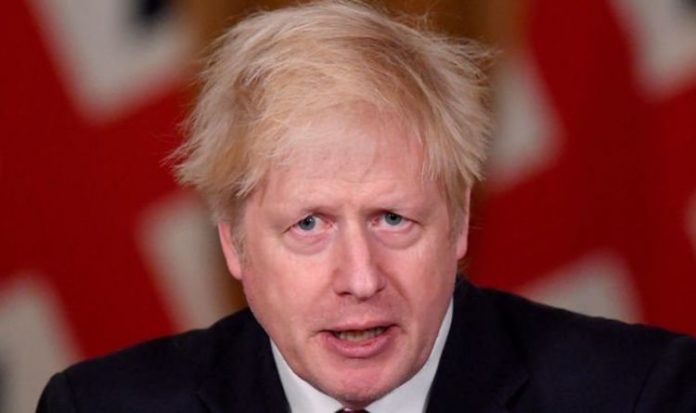Brexit: Hilary Benn says he doesn’t give Johnson any credit
More than four years on from the referendum vote to break free from Brussels, the Prime Minister clinched an agreement for zero-tariff trade to continue between the UK and the bloc from the end of the post-Brexit transition period next week. Officials were still checking the fine details of the treaty text yesterday but formal confirmation of the deal is expected early today. A 2,000-page draft treaty setting out the future trade and security relationship between Britain and the EU is ready to be unveiled.
Mr Johnson’s extraordinary diplomatic achievement follows years of political rancour and 10 months of often deadlocked trade talks.
The news comes just seven days before the country’s transition out of the EU’s single market and customs union ends.
Parliament is expected to be recalled from its Christmas break within days for MPs and peers to approve the treaty in time for the end of the post-Brexit period.
EU diplomats are understood to be in talks to ensure the deal will legally come into effect from 11pm – midnight in Brussels – on December 31.
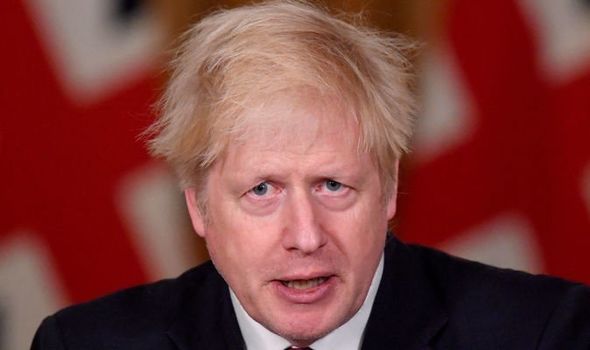
Boris Johnson clinched an agreement for zero-tariff trade to continue between the UK and the bloc (Image: Getty )
This is despite claims from MEPs that the European Parliament will be unable to ratify the treaty by the end of the year because of the lack of time.
The pound soared on global money markets yesterday afternoon as rumours of the deal spread. On a day of high drama in Brussels, Mr Johnson’s chief Brexit envoy Lord Frost held face to face talks with senior Eurocrat Stephanie Riso at the European Commission’s Berlaymont HQ site yesterday.
As the two sides closed in on an agreement, one Government source said: “We’re on the brink of a deal. Lord Frost is in Brussels ironing out the final details.
“There was some last minute haggling over fish but we are on course for a zero-tariff trade deal that has no role for the European Court and lets us take back control of our borders and our laws and so on.”
Sources said the two sides are close to agreeing a deal on fishing that would mean a five-year transition period.
Government sources say the transition will begin with the UK entitled to keep half of the catch in coastal waters, rising to twothirds by the end of the period.
British sources said the five-year transition out of Brussels fisheries rules would allow time for the Government to invest in rebuilding the country’s fishing industry.
Eurosceptic Tory MPs are today poised to set up a panel of experts led by the veteran anti-Brussels MP Sir Bill Cash to scrutinise the fine print of the treaty.
A statement from Mark Francois and David Jones, the chairman and vice-chairman of the European Research Group of Brexiteer Tories, said: “Assuming a deal between the UK and the EU is officially confirmed, the ERG will reconvene the panel of legal experts, chaired by Sir Bill Cash, to examine the details and legal text.”
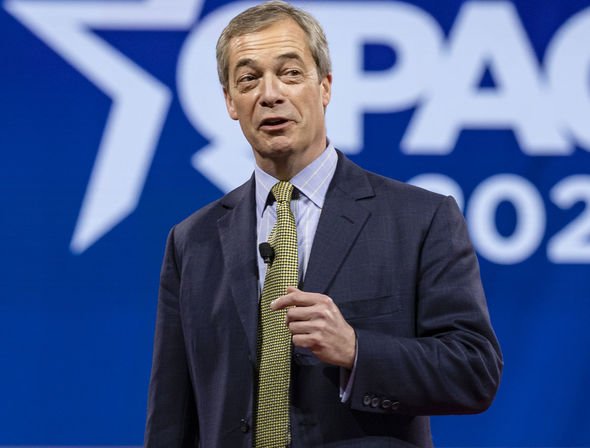
Nigel Farage suspected the deal would emerge to be a sell-out for the UK fishing industry (Image: NC)
Senior Tory backbencher Bernard Jenkin said: “Amid the expectation of an EU-UK agreement, ERG MPs will want to wait until we have seen a legal text and we understand what it means, if our opinion is to have any credibility.”
Brexit Party leader Nigel Farage yesterday suspected the deal would emerge to be a “sell-out” for the UK fishing industry.
He said: “It sounds like the British team have dropped the ball before the line.
“No wonder they want a Christmas Eve announcement to hide the fisheries sell-out.” Other Brexit campaigners appealed to fellow Eurosceptics not to rush to judgement too hastily before the full details have been revealed.
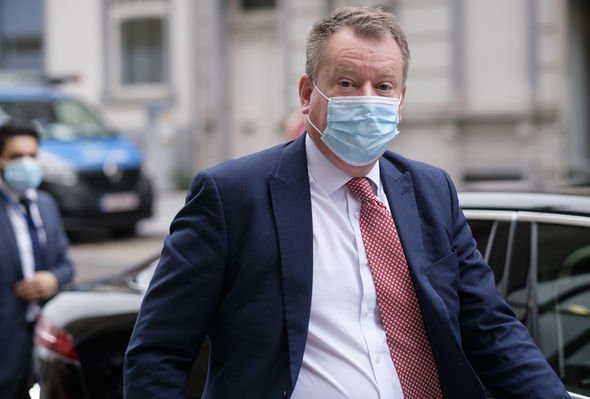
Lord Frost is currently in Brussels ironing out the final details of the deal (Image: NC)
Baroness Stuart, a former Labour minister who was a leading figure in the Vote Leave campaign in the 2016 referendum, said: “Any deal emerging from the long and tough negotiations deserves rational and calm consideration rather than rushing to a judgement.
“For some it will never be enough while others regard anything with leaving EU as too much.”
Mr Johnson and European Commission President Ursula von der Leyen were expected to formally agree the UK-EU trade deal early today.
They held a series of telephone calls in recent days in a last-ditch scramble to clinch the agreement before the end of the post-Brexit transition period.
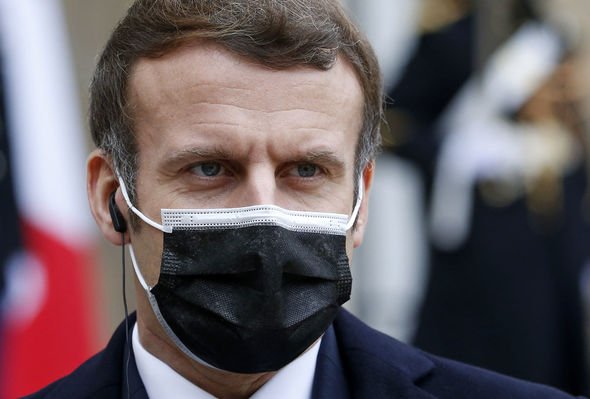
President Macron has been demanding close to unchanged access to the UK’s coastal zone (Image: Getty )
The final trade discussions concentrated on access to UK waters for European fishing fleets.
The issue had been one of the key sticking points throughout the trade wrangle.
Commission chiefs are expected to submit a draft treaty text to the European Parliament and the heads of the 27 EU member countries as early as today.
EU governments will have two days to examine and approve the draft under a procedure laid out by Brussels officials to rush through the ratification process.
French officials claimed that the EU had won “huge concessions” from Britain on fishing as details of the final compromise were circulated to coastal states.
But their bragging infuriated other EU diplomats, who feared premature spinning could poison the atmosphere just as the talks were concluding. British sources dismissed the briefings out of Paris as posturing.
French President Emmanuel Macron has been demanding close to unchanged access to the UK’s coastal zone, where French boats net many of their catches.
His Europe minister Clement Beaune said France would have pulled the plug on the negotiations but for the destructive impact a no-deal Brexit would have on its fishing industry.
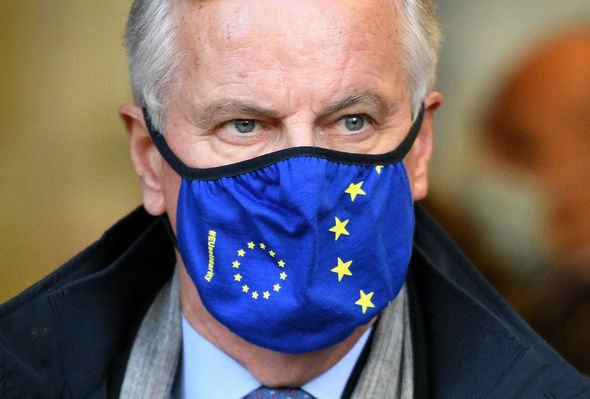
Michel Barnier said the post-Brexit deal will pave the way for a new generation of free-trade (Image: Getty )
Diplomats and officials have now worked through the night preparing for EU states to sign off on the Brexit trade deal.
EU ambassadors are poised to meet this morning to decide whether the bloc should support the proposals for the future relationship pact.
If the deal receives a green light, Brussels will offer to “provisionally apply” the treaty to ensure it can enter into force at the end of Britain’s transition out of the EU on January 1.
Member nations and MEPs will then be made to complete the ratification process early in the new year.
EU chief negotiator Michel Barnier has told colleagues the post-Brexit deal will pave the way for a “new generation of free-trade agreement”.
